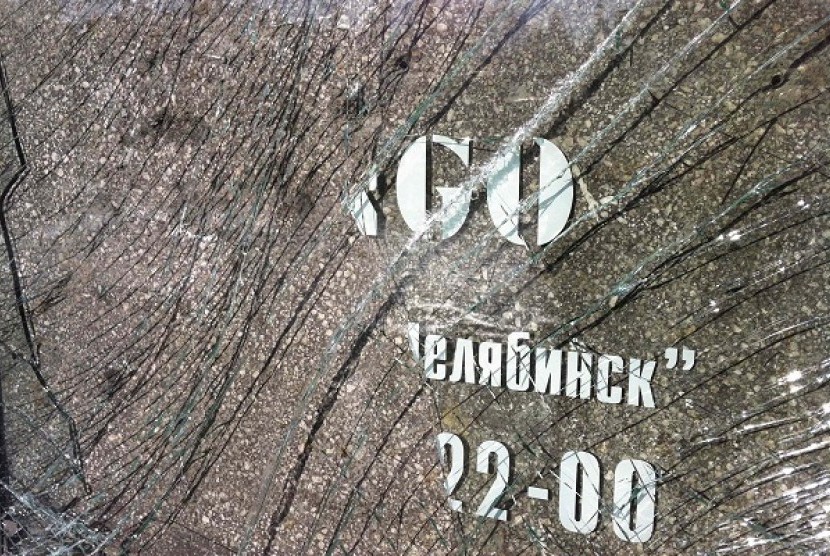REPUBLIKA.CO.ID, CHELYABINSK - Thousands of Russian emergency workers went out on Saturday to clear up the damage from a meteor that exploded over the Ural mountains, damaging buildings, shattering windows and showering people with broken glass.
Divers searched a lake near the city of Chelyabinsk, where a hole several feet wide had opened in the ice, but had so far failed to find any large fragments, officials said. The scarcity of evidence on the ground fuelled scores of conspiracy theories over what caused the fireball and its huge shockwave on Friday in the area which plays host to many defense industry plants.
Nationalist leader Vladimir Zhirinovsky told reporters in Moscow it could have been "war-mongers" in the United States. "It's not meteors falling. It's a new weapon being tested by the Americans," he said.
A priest from near the explosion site called it an act of God. Social media sites were flooded with speculation about what might have caused the explosion, if not a meteorite.
"Honestly, I would be more inclined to believe that this was some military thing," said Oksana Trufanova, a local human rights activist.
Asked about the speculation, an official at the local branch of Russia's Emergencies Ministry simply replied: "Rubbish".
Residents of Chelyabinsk, an industrial city 1,500 km (950 miles) east of Moscow, heard an explosion, saw a bright light and then felt a shockwave that blew out windows and damaged the wall and roof of a zinc plant. A fireball traveling at a speed of 30 km (19 miles) per second according to Russian space agency Roscosmos, blazed across the horizon, leaving a long white trail visible as far as 200 km (125 miles) away.
NASA estimated the meteor was 55 feet across before entering Earth's atmosphere and weighed about 10,000 tons. It exploded miles above Earth, releasing nearly 500 kilotons of energy - about 30 times the size of the nuclear bomb dropped on the Japanese city of Hiroshima in World War Two, NASA added.
"We would expect an event of this magnitude to occur once every 100 years on average," said Paul Chodas of NASA's Near-Earth Object Program Office at the Jet Propulsion Laboratory in Pasadena, California.
"When you have a fireball of this size we would expect a large number of meteorites to reach the surface and in this case there were probably some large ones."
Search teams said they had found small objects up to about 1 cm (half-an-inch) wide that might be fragments of a meteorite, but no larger pieces. The Chelyabinsk regional governor said the strike caused about 1 billion roubles (33 million USD) worth of damage.


